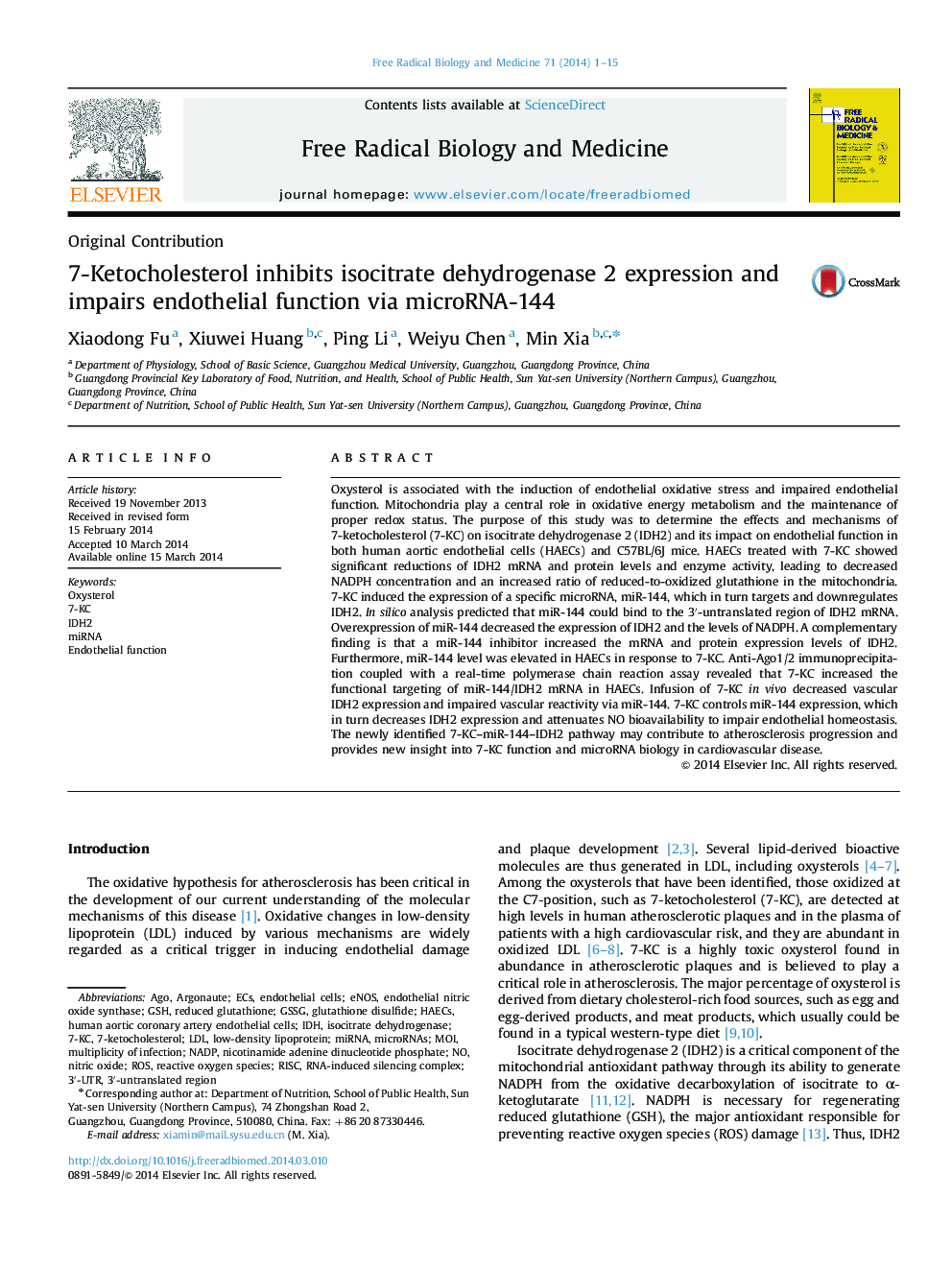| Article ID | Journal | Published Year | Pages | File Type |
|---|---|---|---|---|
| 8270268 | Free Radical Biology and Medicine | 2014 | 15 Pages |
Abstract
Oxysterol is associated with the induction of endothelial oxidative stress and impaired endothelial function. Mitochondria play a central role in oxidative energy metabolism and the maintenance of proper redox status. The purpose of this study was to determine the effects and mechanisms of 7-ketocholesterol (7-KC) on isocitrate dehydrogenase 2 (IDH2) and its impact on endothelial function in both human aortic endothelial cells (HAECs) and C57BL/6J mice. HAECs treated with 7-KC showed significant reductions of IDH2 mRNA and protein levels and enzyme activity, leading to decreased NADPH concentration and an increased ratio of reduced-to-oxidized glutathione in the mitochondria. 7-KC induced the expression of a specific microRNA, miR-144, which in turn targets and downregulates IDH2. In silico analysis predicted that miR-144 could bind to the 3â²-untranslated region of IDH2 mRNA. Overexpression of miR-144 decreased the expression of IDH2 and the levels of NADPH. A complementary finding is that a miR-144 inhibitor increased the mRNA and protein expression levels of IDH2. Furthermore, miR-144 level was elevated in HAECs in response to 7-KC. Anti-Ago1/2 immunoprecipitation coupled with a real-time polymerase chain reaction assay revealed that 7-KC increased the functional targeting of miR-144/IDH2 mRNA in HAECs. Infusion of 7-KC in vivo decreased vascular IDH2 expression and impaired vascular reactivity via miR-144. 7-KC controls miR-144 expression, which in turn decreases IDH2 expression and attenuates NO bioavailability to impair endothelial homeostasis. The newly identified 7-KC-miR-144-IDH2 pathway may contribute to atherosclerosis progression and provides new insight into 7-KC function and microRNA biology in cardiovascular disease.
Keywords
Related Topics
Life Sciences
Biochemistry, Genetics and Molecular Biology
Ageing
Authors
Xiaodong Fu, Xiuwei Huang, Ping Li, Weiyu Chen, Min Xia,
